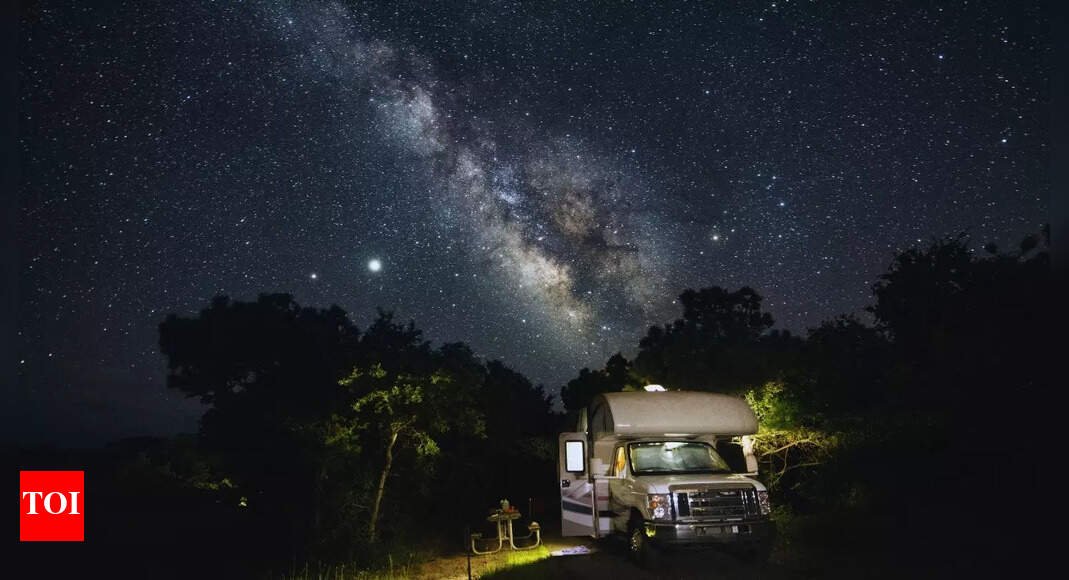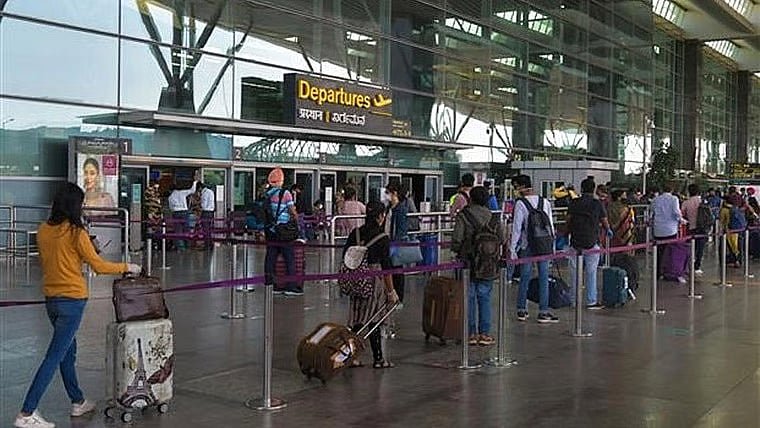Travel Guides & Articles
Now Turkey Joins With Pakistan, Bangladesh, Iran, India And More In Visa Restriction List as Japan Tightens Visa Policies: Know The Impact on Travelers

Published on
August 24, 2025
In recent months, Japan has introduced visa restrictions affecting citizens from several countries, including Bangladesh, Pakistan, Iran, China, India, the Philippines, Vietnam, Myanmar, Nepal, North Korea, and Russia. These measures have sparked concerns among travelers and the international community, especially as Japan was previously known for its relatively open visa policies. The restrictions are part of a broader shift in Japan’s approach to immigration and international travel, influenced by various factors including security, diplomatic relations, and health considerations. As a result, travelers from these affected nations may face new barriers when attempting to visit Japan, leading to potential disruptions in tourism and bilateral relations.
Countries Affected by Japan’s Visa Restrictions
The following countries have been identified as having restricted visa access to Japan:
- Bangladesh
- Pakistan
- Iran
- China
- India
- Philippines
- Vietnam
- Myanmar
- Nepal
- North Korea
- Russia
Reasons Behind Japan’s Visa Restrictions
1. Security Concerns
Japan has expressed concerns over security issues related to certain countries. For instance, North Korea’s ongoing missile tests and nuclear activities have led Japan to impose strict entry restrictions on its citizens. Similarly, Iran’s geopolitical tensions have influenced Japan’s visa policies.
2. Diplomatic Relations
The state of diplomatic relations between Japan and other nations plays a significant role in visa policies. Countries with strained relations may face tighter visa requirements. For example, Japan’s diplomatic stance towards Myanmar’s military regime has resulted in limited visa access for its citizens.
3. Reciprocal Agreements
Japan often bases its visa policies on reciprocal agreements with other countries. If a country imposes stringent visa requirements on Japanese citizens, Japan may reciprocate with similar measures. This has been observed in its relations with certain countries.
4. Public Health Concerns
Global health crises, such as the COVID-19 pandemic, have led Japan to implement temporary visa restrictions. These measures were aimed at controlling the spread of the virus and protecting public health.
The Rise of Restrictions on Turkish Citizens
Recent reports from Japanese nightlife establishments have confirmed that some venues, particularly nightclubs, are refusing entry to individuals carrying Turkish passports. Social media posts from travelers have highlighted this growing issue, with several visitors recounting experiences where they were denied entry after their nationality was identified. These restrictions are being imposed even though no official government mandate has been issued yet.
The move comes after a statement by Saitama Governor Motohiro Ono in July, urging the Japanese authorities to suspend the visa-free travel arrangements for Turkish nationals. Although this suggestion has yet to result in a national policy change, local businesses appear to be preemptively adjusting their practices, especially in the hospitality and entertainment sectors.
Implications for Turkish Citizens and Japan’s Reputation
For Turkish nationals, the restrictions represent a stark shift from the previously friendly and open atmosphere that Japan had long cultivated for international visitors. Japan has long been seen as a safe and welcoming destination for travelers from all over the world, including Türkiye. The introduction of nationality-based bans in nightlife venues contradicts this image and could potentially discourage Turkish visitors from traveling to Japan.
The impact on tourism is particularly concerning for the Japanese tourism industry. For years, Japan has been a popular destination for Turkish tourists, with a growing interest in Japanese culture, history, and cuisine. These new barriers could lead to reduced confidence among Turkish travelers, who may feel unwelcome or restricted. Tourism experts suggest that even localized measures, if left unchecked, could damage Japan’s reputation as a diverse and open destination for international tourists.
The Background: Visa-Free Travel and Political Shifts
Japan and Türkiye have enjoyed visa-free travel arrangements for many years, allowing Turkish citizens to visit Japan for tourism, business, or short stays without requiring a visa. However, Governor Ono’s recent comments have sparked a shift in the political climate surrounding migration and security concerns. While no formal changes to the visa policy have been announced, the discourse around reconsidering visa exemptions has led to a rise in restrictions from individual businesses.
Japan’s central government has yet to make any official announcements regarding visa-free travel, leaving many Turkish nationals uncertain about the future of their travel freedoms. However, the actions taken by nightclubs and other businesses in anticipation of potential policy changes signal a tightening of access for Turkish visitors.
The Impact on Turkish Tourism and Local Businesses in Japan
The restrictions on Turkish passport holders could have a ripple effect on both tourism and local businesses in Japan. With fewer Turkish visitors choosing Japan as a travel destination, there could be a downturn in tourism-related spending, including accommodations, dining, and cultural activities. Moreover, many tourism operators and local businesses that have benefited from the influx of Turkish tourists may see a decline in demand.
The political and social impact of these restrictions is also significant. Turkish citizens, many of whom have visited Japan for years without incident, may feel disheartened by the growing sense of exclusion. These developments also pose a potential diplomatic challenge, as they may prompt reciprocal actions by Türkiye, further complicating bilateral relations.
What Does This Mean for Future Travel to Japan?
For those considering Japan as their next travel destination, it’s important to keep an eye on the evolving situation. Although there have been no official changes to the visa policy, travelers should be aware of the possibility of increased restrictions, particularly when it comes to entry into private venues like nightclubs.
To navigate this evolving situation, here are a few tips for Turkish travelers and those planning to visit Japan in the near future:
- Check Entry Requirements Before Traveling: While Japan currently maintains a visa-free entry policy, travelers should verify any changes to travel guidelines before departure. The Japanese embassy or consulate website is a reliable resource for up-to-date information.
- Be Prepared for Possible Restrictions: If you are planning to visit Japan, it’s wise to expect potential restrictions in nightlife venues. Carrying a valid passport and preparing for additional checks could help mitigate any entry issues.
- Explore Other Regions of Japan: If restrictions continue to impact the major cities, consider exploring lesser-known areas of Japan, where tourism policies might not be as strictly enforced.
- Stay Informed: Travel agencies and tourism organizations are closely monitoring the situation. Staying informed about any government announcements will help avoid confusion and frustration.
How Can Japan Address These Concerns?
To address the concerns surrounding these restrictions, Japan may need to consider implementing clearer policies that ensure a fair and welcoming atmosphere for all tourists. A return to open, visa-free travel for Turkish nationals could help rebuild trust between Japan and Türkiye while also supporting Japan’s broader tourism goals. Additionally, greater collaboration between government authorities and local businesses could help streamline entry processes and prevent individual establishments from enforcing arbitrary nationality-based restrictions.
Japan’s status as an inclusive and welcoming destination depends on its ability to manage these tensions while keeping its doors open to international visitors. How the country navigates this issue in the coming months will have lasting consequences for its tourism industry and its relations with Türkiye.
Key Points:
- Issue: Restrictions targeting Turkish passport holders at Japanese nightclubs and other venues.
- Trigger: Calls from Saitama Governor Motohiro Ono to reconsider the visa-free travel policy for Turkish nationals.
- Current Measures: Localized bans at nightlife venues, affecting Turkish travelers.
- Existing Arrangement: Visa-free travel between Japan and Türkiye.
- Concerns: Impact on tourism, diplomatic relations, and Japan’s global reputation as an inclusive travel destination.
Impact on Travelers and Tourism
The imposition of visa restrictions has significant implications for travelers:
- Inconvenience for Travelers: Citizens from affected countries may face challenges in planning trips to Japan, requiring additional documentation and processing time.
- Economic Impact: Tourism is a vital sector for Japan’s economy. Restricting visitors from certain countries can lead to a decline in tourist numbers, affecting local businesses and the hospitality industry.
- Cultural Exchange: Japan has long valued cultural exchange. Visa restrictions may hinder opportunities for international students, researchers, and professionals to engage with Japanese culture and institutions.
Recommendations for Affected Travelers
Travelers from countries facing visa restrictions should consider the following steps:
- Consult Official Sources: Regularly check the Japanese Ministry of Foreign Affairs website for the latest visa information and updates.
- Prepare Documentation: Ensure all required documents are complete and accurate to avoid delays in the visa application process.
- Consider Alternative Destinations: If facing significant challenges in obtaining a Japanese visa, explore other countries in the region with more accessible entry requirements.
Conclusion: Navigating Japan’s Visa Landscape
Japan’s visa restrictions are influenced by a complex interplay of security, diplomacy, reciprocity, and public health considerations. While these measures may pose challenges for travelers, staying informed and prepared can help mitigate potential obstacles. As international relations evolve, so too may Japan’s visa policies, potentially leading to changes in the future.
Travel Guides & Articles
Beyond wildlife: India’s best nature trips to plan before 2025 ends |

The wildlife season is just around the corner, and we are excited about that. But this time, we are not here for that. For nature lovers, India’s diverse landscapes do not disappoint. Here we are looking at experiences beyond wildlife safaris, from lush valleys to serene backwaters. The winter months will provide perfect weather for exploring the outdoors. Here are eight exceptional nature trips across India to plan before the year ends.
Mawlynnong, Meghalaya
From Shillong Airport, Mawlynnong is located just 90 km. Also known as Asia’s cleanest village, Mawlynnong’s forests, waterfalls, and living root bridges are some of the best things you will experience in Northeast India. Not to forget, winter is the time when Dawki River (located just 30 km from Mawlynnong) is at it’s best form. Crystal clear water of Dawki River will leave you mesmerised. When in Mawlynnong, stay in village guesthouses. They are budget-friendly, and will let you have authentic traditional stay experience.
Dandeli, Karnataka
Located just 125 km from Goa Airport, Dandeli is nestled in the Western Ghats’ foothills. Its dense forests and Kali River offer adventure and serenity. Its flat terrain and riverine landscape are photogenic, perfect for the ‘gram.’ If you can, take out time to go rafting on the Kali River, or trek to Kavala Caves.Bhitarkanika National Park, OdishaLocated just 150 km from Bhubaneswar Airport, this mangrove ecosystem and wetland, spans 672 sq km. It offers serene boat rides through creeks and sightings of crocodiles and migratory birds. Bhitarkanika is a beautiful mix of wildlife and offbeat travel. Cruise through mangroves, spot estuarine crocodiles, or visit the Olive Ridley turtle nesting site at Gahirmatha.Gokarna, KarnatakaGokarna is located approximately 150 km from Goa Airport. It’s a quieter alternative to Goa. Gokarna’s pristine beaches and coastal cliffs offer a laid-back nature escape, far from the hustle and bustle of an over-crowded (and expensive) tourist trap. Here’s what to do in Gokarna: Relax on Om Beach, trek to Kudle Beach, or visit Half Moon Beach for solitude. The Mahabaleshwar Temple is a beautiful addition to your serene coastal holiday.
Travel Guides & Articles
Top 6 Places To Spot Black Panthers In India – Travel and Leisure Asia

Top 6 Places To Spot Black Panthers In India Travel and Leisure Asia
Source link
Travel Guides & Articles
Travel Drops 8% In June 2025

New Delhi: For the first time since 2001, excluding the Covid-19 years, the number of Indians visiting the United States has fallen as 2.1 lakh Indians travelled there in June 2025, which is an 8 per cent drop compared to 2.3 lakh in the same month last year, according to the US Commerce Department’s National Travel and Tourism Office (NTTO).
The downward trend seems to be continuing in July as well, with provisional data showing a 5.5 per cent decline compared to July 2024.
This slowdown is part of a broader global trend. NTTO data shows that overall international arrivals to the US also fell, with a 6.2 per cent drop in June, 7 per cent in May, 8 per cent in March, and 1.9 per cent in February.
Only January and April saw increases of 4.7 per cent and 1.3 per cent, respectively.
India continues to be the fourth largest source of international visitors to the US. Since Canada and Mexico share land borders with America, India ranks as the second largest overseas market after the UK, followed by Brazil in fifth place.
Together, these five countries contributed nearly 60 per cent of all international arrivals to the US in June.
Traditionally, Indian travellers to the US include students, business professionals, and those visiting friends and relatives.
Leisure travel to America has always been less popular compared to destinations like Southeast Asia, the Middle East, and Europe.
The current slowdown is being seen most clearly among students, though experts believe that business and family visits could also be affected if visa delays and constraints continue.
The Indian diaspora in the US is strong, with over 50 lakh people, which has generally ensured a steady flow of travel.
In fact, NTTO data shows that every June since 2001 had recorded higher numbers than the year before — until now.
April this year had been a positive month for Indian travellers overall, with 29 lakh people flying abroad.
The UAE was the top destination, followed by Saudi Arabia, Thailand, Singapore, and the US.
(Except for the headline, this article has not been edited by FPJ’s editorial team and is auto-generated from an agency feed.)
-
Tools & Platforms3 weeks ago
Building Trust in Military AI Starts with Opening the Black Box – War on the Rocks
-

 Business2 days ago
Business2 days agoThe Guardian view on Trump and the Fed: independence is no substitute for accountability | Editorial
-

 Ethics & Policy1 month ago
Ethics & Policy1 month agoSDAIA Supports Saudi Arabia’s Leadership in Shaping Global AI Ethics, Policy, and Research – وكالة الأنباء السعودية
-

 Events & Conferences3 months ago
Events & Conferences3 months agoJourney to 1000 models: Scaling Instagram’s recommendation system
-

 Jobs & Careers2 months ago
Jobs & Careers2 months agoMumbai-based Perplexity Alternative Has 60k+ Users Without Funding
-

 Education2 months ago
Education2 months agoVEX Robotics launches AI-powered classroom robotics system
-

 Funding & Business2 months ago
Funding & Business2 months agoKayak and Expedia race to build AI travel agents that turn social posts into itineraries
-

 Podcasts & Talks2 months ago
Podcasts & Talks2 months agoHappy 4th of July! 🎆 Made with Veo 3 in Gemini
-

 Podcasts & Talks2 months ago
Podcasts & Talks2 months agoOpenAI 🤝 @teamganassi
-

 Mergers & Acquisitions2 months ago
Mergers & Acquisitions2 months agoDonald Trump suggests US government review subsidies to Elon Musk’s companies





















